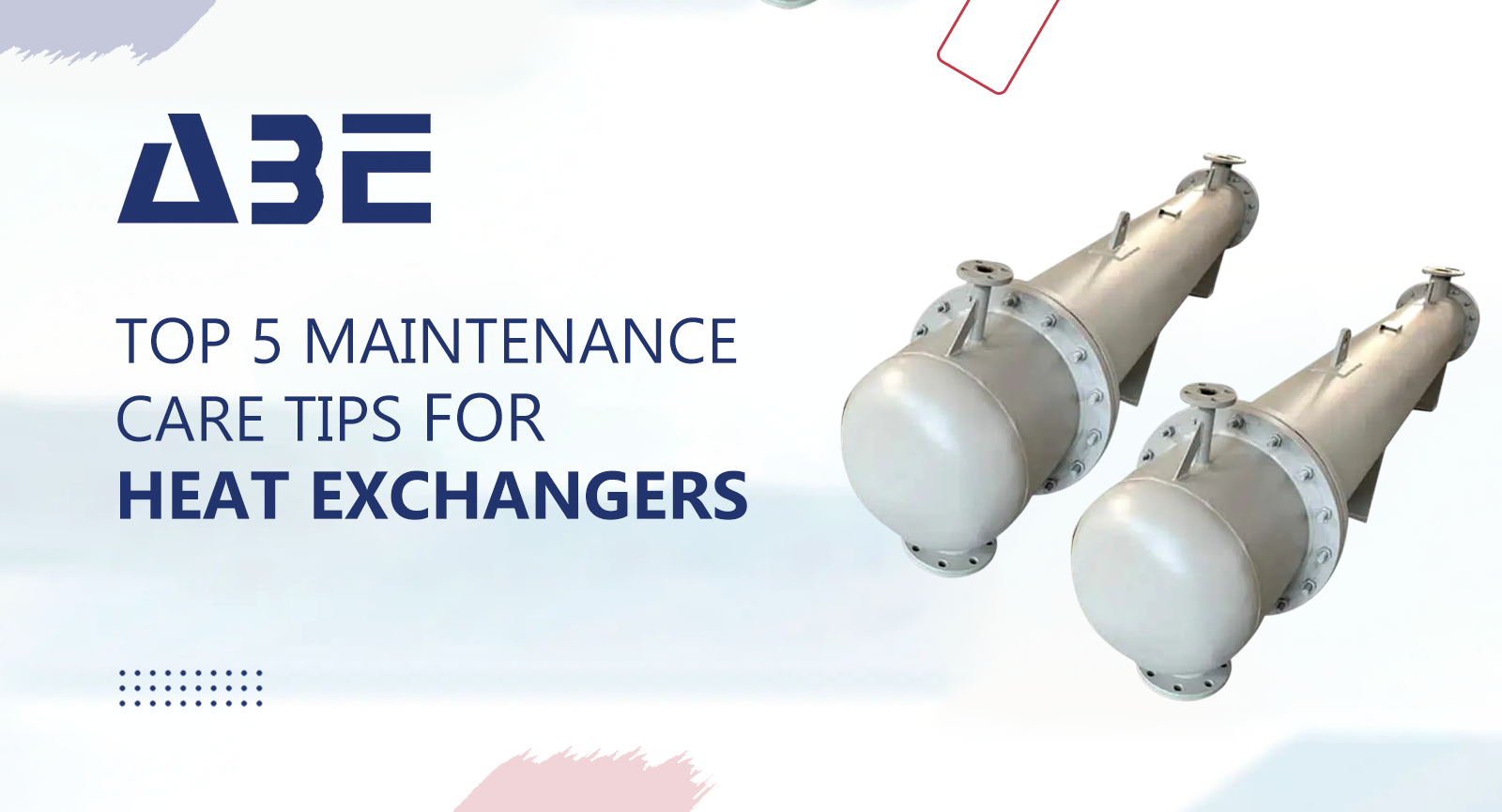
How do you keep your shell and tube heat exchangers maintained? When exchangers are a critical part of your operation, they must be running at peak efficiency. Dirty or clogged exchangers can slow down operations, taint products, and reduce overall efficiency. Heat exchangers should be maintained and cleaned on a routine basis to avoid these undesirable issues.
Here are five factors to consider while doing annual maintenance on shell and tube heat exchangers:
Plan your Heat Exchanger Routine Maintenance.
When it comes time to clean your shell and tube heat exchanger, you may need to temporarily stop operations. This would impact your business operations, which results in lower productivity and efficiency. However, there are techniques to reduce the impact of a plant stoppage. One of the most effective strategies to mitigate the effects is to plan ahead of time.
It is advised to set aside a certain date for planned maintenance. In this manner, you may plan and prepare for the event which allows you to select an insignificant day for the shutdown. Furthermore, because contractors who specialize in equipment maintenance frequently have busy schedules, planning and preparation can assist you in selecting the optimum day and time for you, rather than when the contractor has a free slot in his calendar.
Order any spare gaskets or replacement tube bundles well in advance of your scheduled repair date to ensure they arrive on time. Without a set schedule for planned maintenance, it is all too easy to push this vital chore aside. This increases the likelihood of difficulties with your equipment.
Inspect your equipment.
Excessive fouling is never good for a heat exchanger. If not discovered and rectified on time, it may result in a number of issues, including contaminated or useless products, corrosion, or leakage. Material accumulation can occasionally constitute a fire danger.
To avoid these problems, it is critical to detect and remove fouling as soon as it appears. Check both the tube bundles and the shell side for evidence of material accumulation or corrosion.
Test your heat transfer fluid.
Another point of concern is the heat transfer fluid. When employing chemical-based HTFs, the material will ultimately decay and become ineffective. When this occurs, the exchanger’s effectiveness suffers, and depending on the fluid used, it may stick to the surface of the tubes, produce a more volatile solution, or cause a fire.
Collaborate with The Right People
Routine maintenance on shell and tube heat exchangers is a significant undertaking, thus it is critical to involve all key workers in the planning process. Collaborate to determine maintenance requirements, a day that works best for the firm, and the appropriate personnel to assist or complete the project.
When you engage personnel from other departments, such as your environmental health and safety team, you can work together to make wise decisions that benefit the company as a whole. Furthermore, approaching your planned maintenance day with a checklist increases your chances of having the most productive shutdown day possible.
Clean up after your heat exchanger routine maintenance.
Depending on your cleaning method, you may still need to do certain duties once everything has been cleaned. Whether you utilized chemical or mechanical cleaners to remove fouling, there may be debris left behind. If this is not resolved, your goods may become contaminated. Rinse your equipment thoroughly to remove any remaining chemicals or debris.
Your shell and tube heat exchanger is intended to be closed tightly most of the time. As a result, opening it may occasionally cause gasket damage, according to Marine Insight. Make sure you double-check your gasket and gasket cover before finishing your heat exchanger maintenance. Also, ensure you have replacement gaskets on hand, and replace them as needed.
Key Takeaways
Heat exchanger regular maintenance and cleaning might be time-consuming, but it’s not something to put off. Being proactive can help your equipment run more effectively and last longer. If you have any queries or need advice on the heat exchanger, need new components, or are ready to replace it, contact the professionals at Abe & Hex India Private Limited.

Abe & Hex India
Since 2009, ABE & HEX has been manufacturing premium quality heat exchangers. We fabricate high-grade products to meet different industrial requirements.
